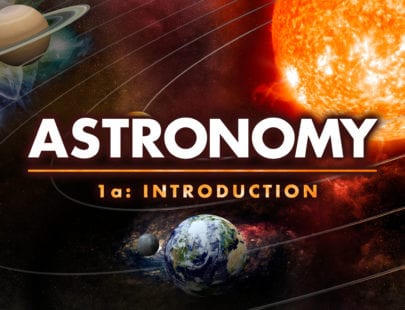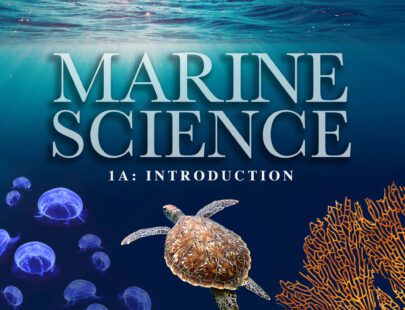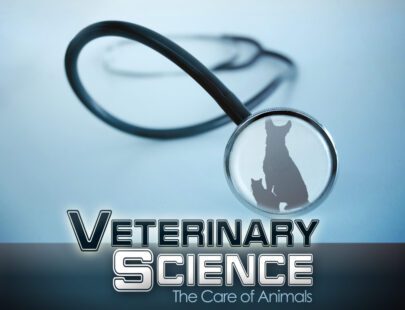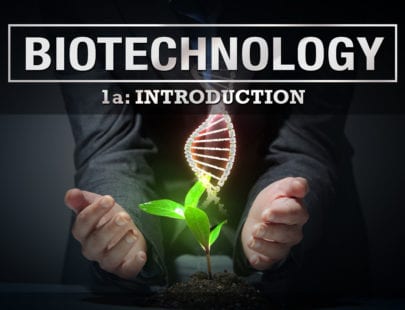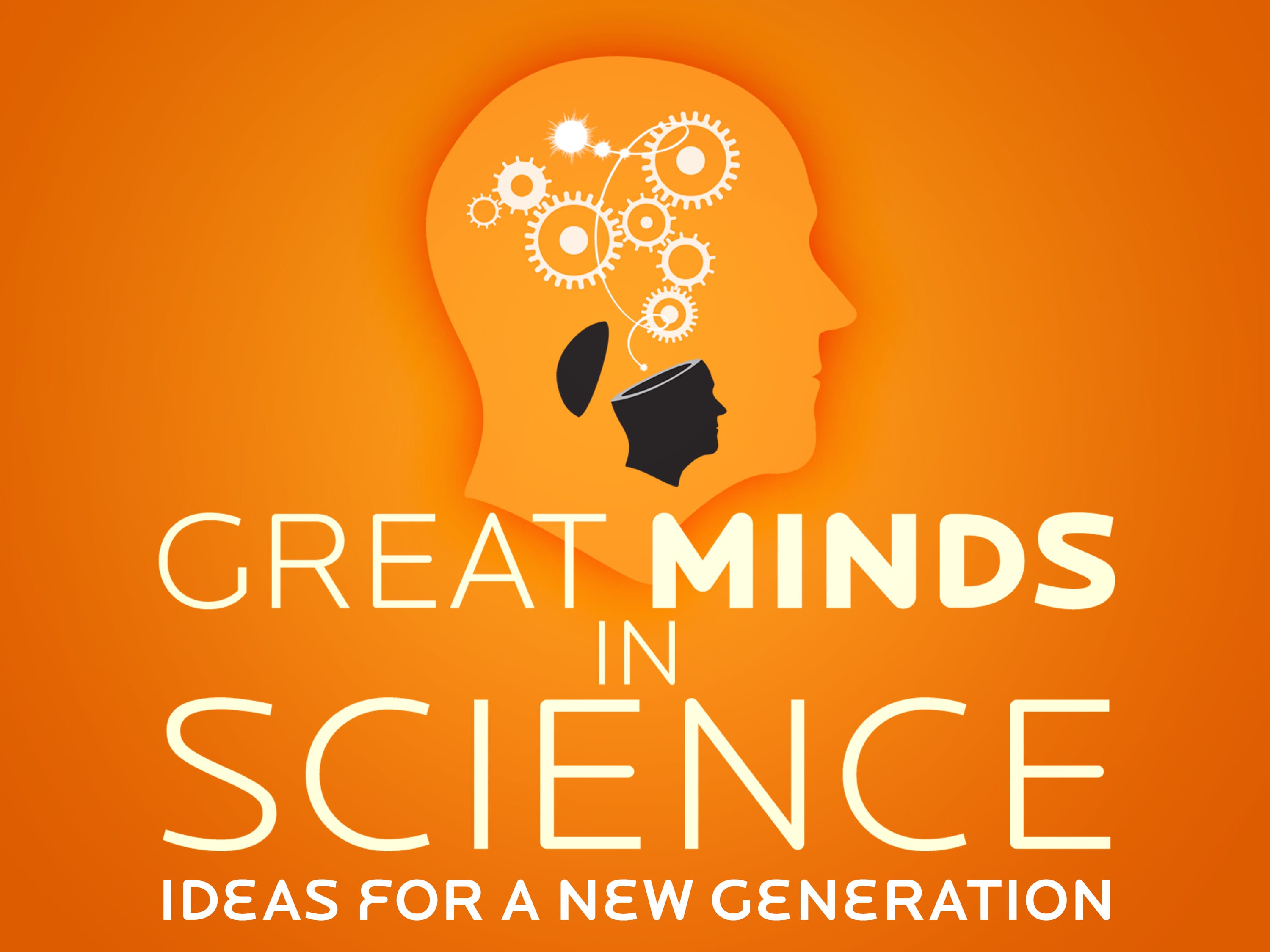
Great Minds in Science: Ideas for a New Generation
Does life exist on other planets? Will the issue of global warming ever be solved? Today, scientists, explorers, and writers are working to answer such questions. Like such famous minds from history as Edison, Einstein, Curie, and Newton, today’s scientists are finding ways to revolutionize our lives and the world. Explore the extraordinary work of past individuals and how their ideas may very well shape the world of tomorrow.
Units at a Glance
Unit 1: Vilayanur Ramachandran: Mysteries of the Mind
In this unit, we will learn more about the brain research of Vilayanur Ramachandran. Ramachandran will walk us through three different brain disorders, including phantom limbs, and what research is telling us about these disorders. He argues that we can better understand our brains and the ways that they work through the study of disorders and brain dysfunction. You will also learn more about neuroscience and why Ramachandran is interested in studyingthe the brain. Finally, you will explore more about the brain, learn how neuroscientists are using magic to investigate brain function, and see whether you can create your own fake limb.
What will you learn in this unit?
- Explain what neuroscience is and how Ramachandran became interested in studying the brain.
- Understand three brain disorders and what they are telling us about brain function.
- Identify the various parts of the brain and the function of each.
- See how magic is helping scientists learn about the brain.
- Understand fake limbs and why this phenomenon happens in our brains.
Unit 2: Bill Stone: Into the Depths
In this unit, we will explore the deepest, darkest caves in the world with renowned cave explorer Bill Stone. In order to descend into the depths of caves, Stone has been at the forefront of creating new technologies and equipment, allowing cavers to go places that were not possible in the past. You’ll learn more about some of this new equipment and technology and how Stone is exploring uses for it in space as well as caves.
What will you learn in this unit?
- Discuss why exploring caves is important.
- Explain some of the new technologies and equipment that is taking cave exploration to new depths.
- Identify about some of the deepest caves in the world.
- Understand what it would be like to study caves.
- See how some of the caving technology is being used for space exploration.
Unit 3: Bonnie Bassler: The Bacteria Puzzle
In this unit, we will join Bonnie Bassler in her search to better understand bacteria and how bacteria communicate with each other. In doing so, we will learn more about what bacteria are and the role that they play in the world. We will also explore Bassler’s research, which seeks to understand how bacteria use a chemical language to talk to each other. Bassler will show us several implications of her research, including the possibility of treating harmful drug resistant bacteria.
What will you learn in this unit?
- Identify what bacteria are and what role they play in the world.
- Discuss how bacteria communicate with each other through a chemical language.
- Explain what the implications of Bassler’s research may be.
- Understand some of the different types of bacteria in the world.
Unit 4: Joshua Klein: Teaching Crows New Tricks
In this unit, you will learn about Joshua Klein’s experiment to teach crows a new trick. Klein came up with the idea to create a vending machine for crows, which gives them food when they pick up coins from the environment and put them in the machine. This mutually beneficial action is one example of how humans and animals can live in urban areas together more peacefully. In teaching the crows, you’ll see how Klein used methods from operant conditioning in his experiment. In learning more about Klein’s experiment, you’ll read more about crows, animals in urban environments, and conditioning methods.
What will you learn in this unit?
- Define about operant and classical conditioning and how they differ.
- Discuss B.F. Skinner’s experiments using operant conditioning.
- Understand crows and their adaptations to urban life.
- Detail Klein’s experiment and how he got the crows to feed the machines for food.
Unit 5: Jane Poynter: Inside Biosphere II
In this unit, Jane Poynter shows us what it is like to live in an artificial world. She spent over two years inside Biosphere II, a sealed, artificial world. You’ll learn more about this project, its implications, and how it relates to the original biosphere, earth. You’ll also learn more about how the various biomes of earth work together to support life and how these biomes were recreated in Biosphere II.
What will you learn in this unit?
- Explain what Biosphere 2 is.
- Discuss what it would be like to live within an artificial world like Biosphere 2.
- Understand other sealed worlds and what lessons we are learning from them for the future.
- Grasp more about biomes, habitats, and ecosystems.
Unit 6: Ben Saunders: Exploring the Arctic
In this unit, you will explore the Arctic with Ben Saunders. In doing so, you will learn more about Saunders’ expeditions to the North Pole and the equipment that helps to keep him safe. You will also learn more about the animals and cultures that live in the Arctic. Finally, you will examine some of the challenges that the Arctic faces environmentally and what is being done to try to stop these threats.
What will you learn in this unit?
- Discuss the ecosystem and cultures in the Arctic.
- Understand what it would be like to explore the Arctic.
- Identify some of the men and women who have explored the Arctic.
- Understand what equipment is needed to explore extreme environments.
- Discuss why extreme environments are important to explore and learn about.
Unit 7: Richard Pyle: Into the Twilight Zone
In this unit, we will dive with Richard Pyle hundreds of feet under the ocean to study coral reefs. We will learn about the importance of the equipment and how Pyle has contributed to new technologies, allowing divers to go study parts of the ocean that they haven’t been able to reach before. We will examine what plants and animals live in the ocean’s Twilight Zone and learn why this zone is an important area for research.
What will you learn in this unit?
- Talk about the technologies and equipment that are allowing divers to swim deeper than ever before.
- Identify the ocean’s Twilight Zone.
- Discuss coral reefs and the animals and plants that live in and around them.
- Explain the threats and challenges to the world’s coral reefs.
- Understand why coral reefs are an important part of the ocean’s ecosystem.
Unit 8: Richard Preston: In the Redwood Canopy
In this unit, you will travel with Richard Preston to the top of redwood trees. In the process, you’ll learn more about these tall trees, including the habitat that they grow in, what mechanisms may allow them to grow so tall, and why they die. You’ll also learn about some of the threats to these large trees and their habitat. Finally, you’ll explore what other plants and animals make up the redwood ecosystem and learn about different types of redwoods.
What will you learn in this unit?
- Talk about redwood trees and the habitat they live in.
- Explain some of the threats to redwoods and their habitats.
- Detail what it is like in the canopy of a redwood.
- Understand what makes redwood trees unique and different from other trees.
- Discuss what other plants and animals live in a redwood’s ecosystem.
Unit 9: Al Gore: Fighting Climate Change
In this unit, we will learn more about climate change and the effects that are happening around the globe. We will examine what climate change is, what is causing climate change, and what consequences this might have for different areas of the world. We will also investigate some of the difficulties of solving the climate change problem, including financial and social concerns.
What will you learn in this unit?
- Talk about climate change and why scientists believe that this is happening.
- Explain some of the causes of climate change.
- Identify how humans are contributing to climate change.
- Discuss some of the effects of climate change around the globe.
- Understand efforts to reduce the factors causing climate change.
Unit 10: Brian Cox: Searching for the Universe’s Beginning
In this unit, we will learn about particle physics and what this type of science can tell us about the universe. We will explore the experiments that scientists hope to carry out with the Large Hadron Collider and what these experiments may reveal. We’ll learn more about how scientists are using computers to study the universe, what the Higgs Boson particle may be, and why scientists hope to uncover the Higgs Boson particle.
What will you learn in this unit?
- Talk about particle physics.
- Explore the different types of particles found in the universe.
- Identify some of the experiments scientists hope to do with the Large Hadron Collider.
- Talk about the Higgs Boson particle.
- Discuss some of the challenges scientists have faced with the LHC.
Required Materials
No additional materials required for this course.
